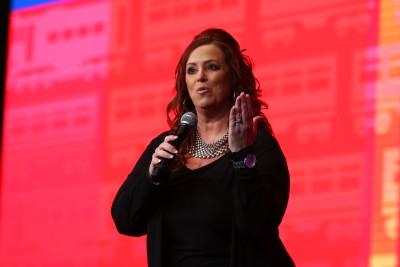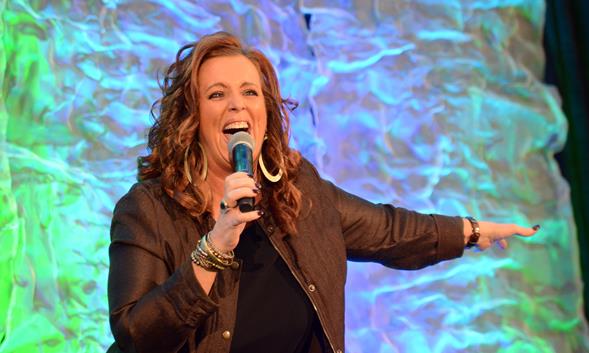Last updated on January 22nd, 2019 at 01:51 pm
Why So Many Motivational Speakers Are Broke
Out of the hundreds of speakers I have met in my life, it amazes me how many are unable to sustain a financially viable business. In short, they’re broke. I feel their pain. I remember those years when I didn’t make any money. There were more years than I’d like to admit when I wasn’t making enough to even call it a business. It’s tough. And this business is tougher than most because we aren’t just speaking, we are running a business – all aspects of the business – and many of us have no idea what we are doing. When I look at my own skill level in the areas of marketing, sales, accounting, PR, etc., I am amazed that I am still in business at all. So no judgment here.
Disclaimer: I don’t wear the hat of a business coach for speakers. I’m happy coaching you on your speech, but when it comes to making money, I’ll leave that to the experts. Shoot, I’m still scratching my head and wondering how I’m able to keep my calendar full. I also don’t claim to know everything about this business. In fact, I only know what I know because of where I have been and what I have seen. So I am basing this post on life, or rather business, from where I sit. I don’t claim to have my finger on the pulse of the “industry.”
All that being said, I’m seeing some patterns – some telltale signs and symptoms that might be the root cause or symptom of a flat-lined speaking business (or practice, as some call it – I don’t get caught up in labels – you know what I mean.) Before I list them, let me first define what I mean by “broke.” For the context of this post, I define broke as a business that has been operating for more than a couple of years, and is not paying for itself, meaning it’s not bringing in enough to pay for what is going out. This is similar to when we in our personal lives spend more money than we make. I also define broke as someone who is not able to pay themselves a consistent income from the profits of the business. This post isn’t about how to create a business that you will leave to your children. This post is about simply the business of being a motivational speaker.
The current myth in this business is that everybody is making lots of money – charging high fees – speaking in front of thousands – traveling to exotic places. This is not always or even often the case. I have heard far more stories of failure than I have heard stories of success. Some of these “big name” speakers are not as successful as you think. Or even close. I don’t say this so that we can feel better about ourselves. I say this so we can better understand the truth about our industry. Every company out there studies its competitors and its market. This should be no different. And it’s much better to base our findings on truth than fiction.
I also refuse to define success as charging a certain fee. That’s just folly. There are plenty of people making very good money and charging fees much lower than you would expect. In fact, I’ve seen more speakers dying at high fees than low ones.
From where I sit, here are the reasons why so many speakers are broke. (Note: Some of these things affected my business as well.)
- Launching the business too soon. I decided to start my speaking business when I gave birth. I based this decision on the fact that having a baby would be a good time to quit my job. I was also excited because I already had a handful of jobs booked. Two stupid reasons. I should have waited until I had a good amount of money saved up (it takes money to start a business) and a bigger list of clients. I needed money before I was making money. Bad combination.
- Mediocre speaking skills. This business is competitive. Being good enough just isn’t good enough to keep the lights on. You have to be outstanding, no matter what your fee. Even if you see yourself as more of an expert who speaks, rather than an expert speaker, you will still be expected to deliver a great speech. If anybody else speaks on your area of expertise, it will come down to skill on stage that equals true longevity in the business.
- Lack of Relevant Content. Not sure what you speak about and it’s relevance to the customer. Too much quippy spin and vague wording and broad topics – and we aren’t sure what you are helping us do and why we want it. Too many speakers aren’t showing us how their solutions will help us in our personal or business lives. Thinking you have something for everybody is dangerous. When you can help me do a million things, I start to question your ability to do any of them well. Too many choices and I choose none.
- No clear business model. There are many many models in this business. I would even go so far as to say that every speaker has a unique model for their business – as unique as their fingerprint. You are in trouble if you don’t understand yours. Find other speakers whose model is the closest to what you want to create. Learn from THOSE speakers.
- Not sure who is the buyer is and how to find them. Just because everybody can benefit from what you do, doesn’t mean you should market to everybody. Knowing the best group for you – the group that most desperately needs what you have, that has the money to pay what you’re charging, and perceives value in you being the one to do it – is key. Using the language they use is even more important.
- Improper positioning in your market. Your fees are too high for the market you work in – or vice versa. While we like to make blanket statements about what a speaker should charge, it still depends on what market you work in and what their budget is. You are worth what your market perceives your value to be. You may think you deserve a certain fee. But if they don’t think you deserve it, they won’t pay it. Spend some time determining what your market wants – what they perceive as value.
- Lack of belief in yourself and your product. If you are wishy-washy on the phone, lacking confidence, taking whatever they’ll give you – you won’t win in the end. If you reek desperation, it will affect your ability to get work. Be confident about your abilities, but earn that confidence. Make sure you are confident because you have proof that what you have is something they want. I am much more confident now than I was ten years ago, because now I am SURE my product rocks. In the beginning I wasn’t so sure, and I was right to feel that way, because I wasn’t that good at it.
- Too much belief in yourself and your product. Many speakers have come to me claiming to want to get better, when I suspect that they were already quite convinced that they were good enough, that their problem was not being noticed. You are convinced that you’re only problem is that people don’t know you’re here, when the real problem is that you suck. You don’t want to get better, you just want to charge more and get the same gigs I get. Imagine all the speakers you have heard. If you’re like me, it’s a lot. How many were truly amazing? Probably a very small number compared to how many are out there. I’ve seen hundreds of speeches and only a handful were truly amazing. Yet everybody thinks they are the best. That math doesn’t add up. Maybe we aren’t as good as we think we are. Just maybe we actually aren’t any good at all, and everybody can see it but us. I choose to believe that I am never where I should be, that I can do much better than this. The speech is my product. I want my product to be the best I can make it.
- Lack of a clear business plan. Most broke speakers have no concrete plan for getting business and converting leads into sales. I just recently learned how to create a funnel for my entire business. I always had a business plan every year. Very detailed. Very focused. And it still wasn’t even close to what a plan should look like. It’s not really about having the right plan. It’s about having a plan that is somewhere between a dream board and numbers pulled out of your butt.
- Not working the plan. Having a plan is not the same as following that plan – creating daily processes that keep you from distractions so that you can work the plan. Each day you should know exactly what must be done first – where your priorities are. You can’t wake up every day at the mercy of whatever is waiting in your inbox, or you will constantly be reacting instead of proactively running your business. Set a schedule. Develop a routine.
- Waiting for the phone to ring. So many speakers say they struggle, yet when I ask them what they’re doing about it, I get a blank stare. It’s all about the hustle. You never coast. You always stay three steps ahead. It’s not about being as busy as you can be. It’s not even about working harder than yesterday. It’s about putting the pen to paper. It’s about writing that blog every Friday. It’s about following up on leads and returning the flipping phone call in a timely manner.
- Thinking that somebody will bring you business. It’s just not so. Sure, referrals from other speakers are great. But if that’s your business model, you’re in trouble. Bureaus are great. I love them. I get lots of business from bureaus. But they only came knocking when I was already bringing in the business and their clients were asking for me and finding me online. They are bombarded by speakers wanting to get booked. It just doesn’t work that way. I have yet to meet anybody who has found a way to pay someone to bring them business. Sure, you can hire someone (hopefully you will do that when your business can afford it) to make sales calls, follow up on leads, do PR, etc. But at the end of the day, those someones are staff members you are paying to do administrative tasks, and they can’t really bring in business for you. You have to figure out how to do it on your own.
- Spending money you don’t have – over and over again. I know that you have to spend money to make money. I get it. It’s your choice as to how much debt you will accrue while you build your business. I have always tried to run my business on a shoe-string budget. I don’t spend money unless the business account has the money to spend. I’m not saying I’ve made the best choices over my career. Far from it. But it doesn’t change the truth of what I learned from my mistakes. Don’t spend money you don’t have. If you can’t afford the slick website right now, settle for something less.
- Thinking that a slick website and a cool demo is all you need to get the gig. Cool websites and flashy videos are impressive and great. But most clients are smarter than that. They’ve already been burned by promo materials that were better than the speaker. It’s why so many clients won’t book a speaker unless they’ve heard them, or heard about them. They don’t trust the website as much as you think they do. A great website and demo just isn’t enough for longevity. Word will get around.
- Not saving money and preparing for the future. It’s not about what you make, it’s what you save. Period. End of story. Understand what the future could bring and try to prepare as best as you can for it. There may be a day when you can’t speak or travel.
- Not generating other avenues of income. Someone once said that we should have seven different avenues of income. Not sure if that’s true, but I certainly want to have more than just one. If everything is tied up in my ability to get on a stage, then the risk is high. As soon as I finish one way to make money, I’m usually looking to what I can create next. My goal is to create things that aren’t as dependent on me being there.)
- Doing things just because the others are doing it, or because somebody told you to. This is the biggest kiss of death I have seen – believing that there is one way to do this. We all give advice based on the kind of work we get and what we did to get it – what worked for us. Every speaker has a different path they took to get where they are. We all swear our way is the right way. But it wasn’t. It was the right way FOR US. You have to learn to filter advice based on your own business model and what you want to accomplish. There are things I can do, but it doesn’t mean I WANT to do them. We all want to create something different that fits our own dreams and desires. While our tips and techniques may overlap, we must be very focused on our model. One piece of advice does not fit all – and in fact can kill your business if you follow it.
- Vanity. I’ve watched speakers drowning, yet not willing to take a lower fee. I’ve seen speakers embellish (lie) to make themselves look more successful. I’ve met speakers who only care about who will help them. Speakers who are willing to take without giving. Speakers whose egos get so big they don’t realize what a pain they are to deal with. I can’t really prove that pride goes before the fall, but I’ve seen good things come to those who stay humble and grounded. When we get more focused on what others are doing, and proving that we are right, we take our focus off the things that matter most to our business. Just keep your head down and work your plan,
- Fear. Yep. Good old fashioned fear. The thing that keeps most of us from going after what we want. Fear that we’re not good enough, smart enough, pretty enough, skinny enough, brave enough, talented enough, liked enough, successful enough, loved enough. It stops us all cold. The fear doesn’t ever really go away. Jump anyway. You’ll never know unless you try.
Kelly Swanson is an award-winning storyteller, comedian, motivational speaker, Huffington Post Contributor, and cast member of The Fashion Hero television show airing on Amazon Prime. She is also the author of Who Hijacked My Fairy Tale, The Land of If Only, The Story Formula, and The Affirmation Journal for Positive Thinking. She was a featured entertainer for Holland America Cruise Lines, keynote speaker for the International Toastmasters Convention, and has keynoted major conferences and corporate events from coast to coast. She just launched her one-woman show Who Hijacked My Fairy Tale in theaters, and it is being booked all over the country. In July of 2022, she was inducted into the National Speakers Association Speaker Hall of Fame.
Note: Articles by Kelly may contain affiliate links and may be compensated if you make a purchase after clicking on an affiliate link.




